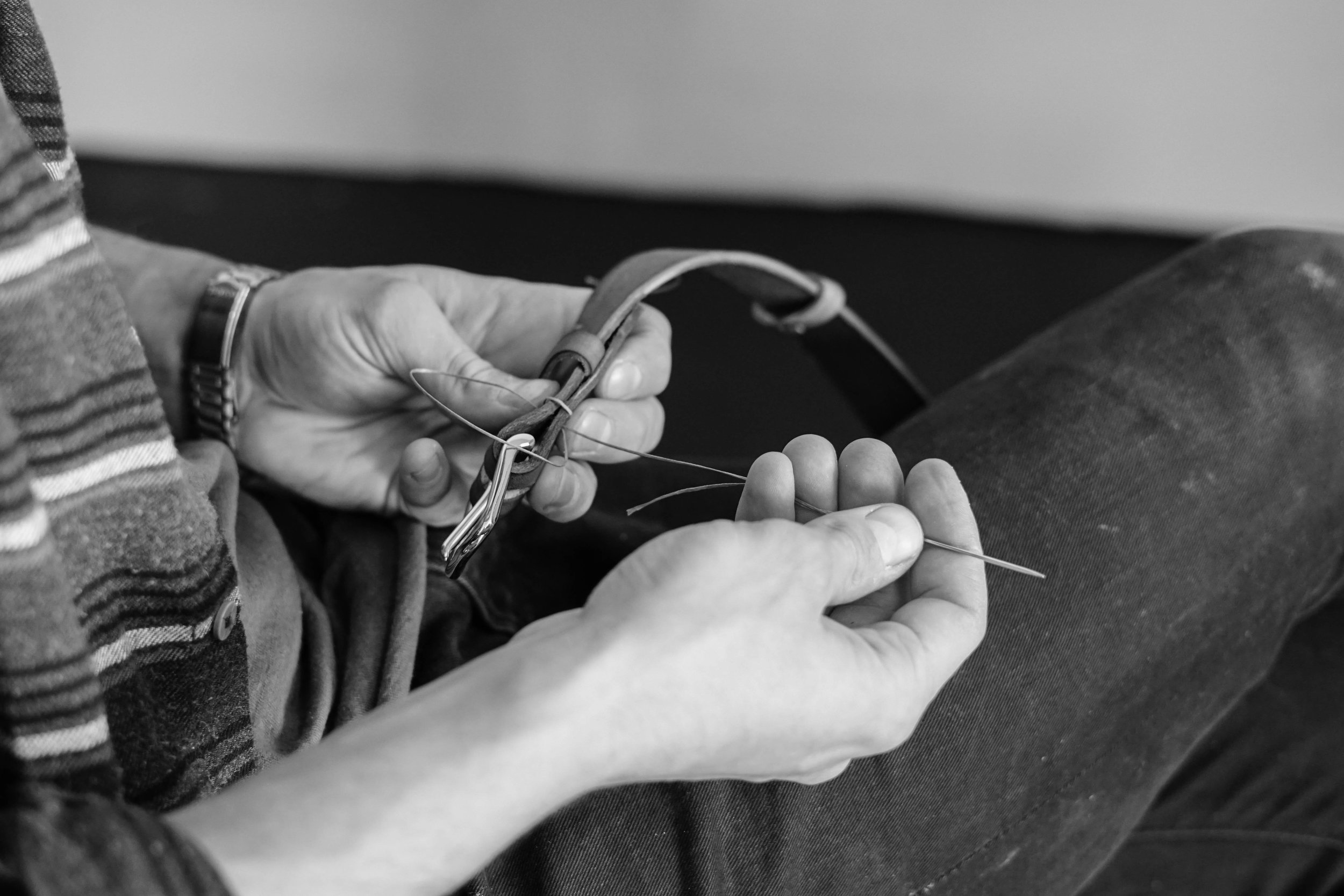The Dying Art Of
I want to surround myself and connect with the people that make objects, the trinkets and products I bring into my home. I feel so passionately that the better we understand forgotten industries, hands that still create stitch by stitch goods made to last a lifetime, the easier it becomes to invest in them. The goods, the people, the dying art of.
For the first instalment, I'm delighted to feature Fieldwork Co.
The makers of my belt, the first I've owned in years because they were able to tailor the length to fit my hips - a beautiful leather plus-size belt, basically a unicorn in the fashion world. I watched them cut and dye the leather, as Sawyer their daughter ran around the workshop, adorable chaos leaving a small wake of destruction behind, unfazed as they worked away. Each stitch carefully executed with the thread and hardware I chose, right down to the spacing of the notches.
What do you wish people better understood about handmade products / goods / garments?
The time, and effort that each item takes to produce. It's not just about creating the one item. It's sourcing materials, it's creating prototypes, testing them, making blue prints, it's communicating with our customers, and running social media and a website.
What does running a small shop mean to your family?
So many things; it means that I am able to be a stay at home mother to my daughter. It means that Isaac and I have a creative outlet, and a project to collaborate on and work together. Hopefully one day in the future it will mean that Isaac can give up his "regular" job, and work from home with us. It means our daughter can grow up in a creative atmosphere, knowing she can pursue her dreams, and that art is so much more than paint and canvas.
How do you think we can start closing the gap between maker and consumer? How do we rebuild that relationship?
Community, being a part of the maker community, getting out there, actually starting conversations with the consumer about WHY it is important to shop small, and support small businesses. What I love about the maker community is how genuine it is, when we talk to the consumer, we aren't giving off a company line, or policy. We are speaking from the heart, because we put our heart into what we do.
Obviously the cost of a handmade good is more than mass produced - can you talk a bit about that? The reason things cost more to be made ethically? And how you hope that balances over time with quality?
Thank you for asking this! The cost of handmade goods, especially when made is small batches is going to be much higher for many reasons, a few main ones being, cost of materials, cost of time and cost of running a business. Our cost of materials is much higher than a mass produced company, because we are buying smaller quantities, as well as the the quality, we buy materials we know will stand the test of time, and are ethically made (paying fair wages to those making the base goods) The cost of time, people forget that this is our JOB, we need to be paid for the hours that we pour into a project, and we can't support our families on minimum wage. The cost of running a business, we are paying for everything, from marketing, to accounting, our mailing expenses, if something gets lost in the mail, all of those small things make a difference for us.
So yes, you are paying more, because a real human is trying to support their family, but that human is also putting their time and energy into giving you a high quality item, that will last over the years, and over time your costs even out as consumer. And hopefully it will be a product you'll still have in your closet 10 or 15 years from now.
Where do you find inspiration as makers?
Everywhere. Life. Most of our items have come from a time when we were doing something, hiking, beaching, living life and thought to ourselves "I wish I had _____" There is beauty/functionality in so many parts of life, and if you're paying attention, at the farmers market, or fishing a river, we find ideas just present themselves.
Special thanks for Fieldwork Co + Hilltribe by Fieldwork Co
for sharing their story and passion with Something Copper





